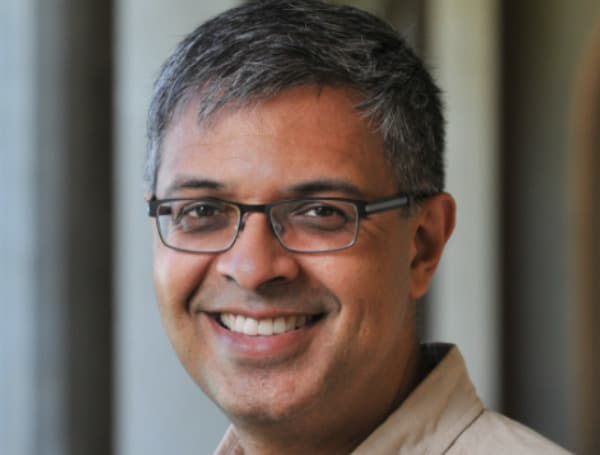Singer Nicki Minaj isn’t the only one finding that you dare not challenge the power of the COVID fearmongers.
Dr. Jay Bhattacharya, a Stanford University epidemiologist and a consultant previously tapped by Florida Gov. Ron DeSantis, is being hounded by a “smear” campaign for dissenting from the push to make school children wear masks, perhaps forever, according to a piece published Wednesday by The Federalist.
The op-ed by Carl Heneghan, a medical professor at the University of Oxford, and Martin Kulldorff, a professor of medicine at Harvard University and another DeSantis adviser, notes that kiosks at Stanford were plastered with posters that linked Bhattacharya to Florida’s virus death count.
The campaign made no sense, Heneghan and Kulldorff wrote because Florida has one of the lowest fatality rates after adjusting for age.
Among the dozen states with the biggest populations, Florida ranks 11th, with 152 deaths per 100,000 residents. Comparatively, New York and New Jersey are tied for first, with about 268 per 100,000. Even lockdown-loving, mask-mandatory California outpaces Florida, at 183.
Yet more troubling, the professors pointed out, is that Melissa Bondy, Bhattacharya’s boss, as chairwoman of Stanford’s epidemiology department, has circulated a petition among the faculty calling on Stanford President Marc Tessier-Lavigne to clarify “the limits of public pronouncements when proclaiming on public health policy.”
“The petitioners are upset that ‘several Stanford faculty members have publicly advocated for policies for others that are contrary to those the university has adopted,’” the op-ed notes. Additionally, Bhattacharya’s critics maintain “these recommendations are disturbing and contrary to public health standards; they foster uncertainty and anxiety and put lives at risk.”
Unlike, say, the frequently shifting and conflicting guidelines handed down by the Biden administration.
Nonetheless, what apparently upset the Stanford teachers was Bhattacharya’s comment as a witness on behalf of the DeSantis administration during last month’s trial over the governor’s ban on mask mandates in schools.
“Certainly, there is no high-quality evidence to support the assertion that masks stop the disease from spreading,” Bhattacharya testified. “Sometimes, you’ll hear about people saying, ‘My mask protects you even if it doesn’t protect me.’ I’ll say there is no randomized evidence in the literature, at all, that supports that notion.”
Heneghan and Kulldorff maintain that despite claims of masking proponents, Bhattacharya is correct.
One recent study was done by Duke University, they noted. Researchers found “very little COVID in North Carolina schools with mask mandates. The problem was all the schools in the study had mask mandates, so there were no schools without such policies to compare them to. On the other hand, Sweden also has reported little to no COVID in its schools, but without forcing masks on students.
Heneghan and Kulldorff did cite two studies of masked adults, one in Denmark and one in Bangladesh. In Denmark, those who wore masks were 23 percent more likely to 46 percent less likely to be infected by COVID, while in Bangladesh, masks reduced infections by 0 percent to 22 percent.
In short, they wrote, “based on these randomized studies, adult masks appear to have either no or limited efficacy.”
“The wisdom of relying on high-quality evidence is evident from hard-won experience” the professors noted. “In the history of medicine, conventional wisdom not backed by randomized evidence has turned out wrong when trials are run.”
The problem, though, is not just the lack of evidence; it’s the unwillingness to contemplate a reality that differs from the official narrative.
As Heneghan and Kulldorff wrote, “Public health requires that scientists openly discuss their differences about the quality of available studies and data. … Silencing debate will lead to ever more distrust in public health.”
The petition-driven attack on Bhattacharya, especially when led by a department head, “sends a message that open discussion and disagreement is not appreciated.”
“The Stanford petition is unlikely to silence Bhattacharya, but unless there is a strong rebuke, it may have a sinister effect on other faculty members who are reasonably concerned about their careers and livelihoods,” the authors added.
“Stanford University’s striking motto is ‘The Winds of Freedom Blow.’ It is tragic that other stronger winds are now passing through the Stanford campus that are destructive for science and the global scientific community.”
Support journalism by clicking here to our GoFundNe or sign up for our free newsletter by clicking here
Android Users, Click Here To Download The Free Press App And Never Miss A Story. It’s Free And Coming To Apple Users Soon.

